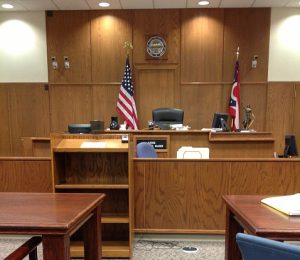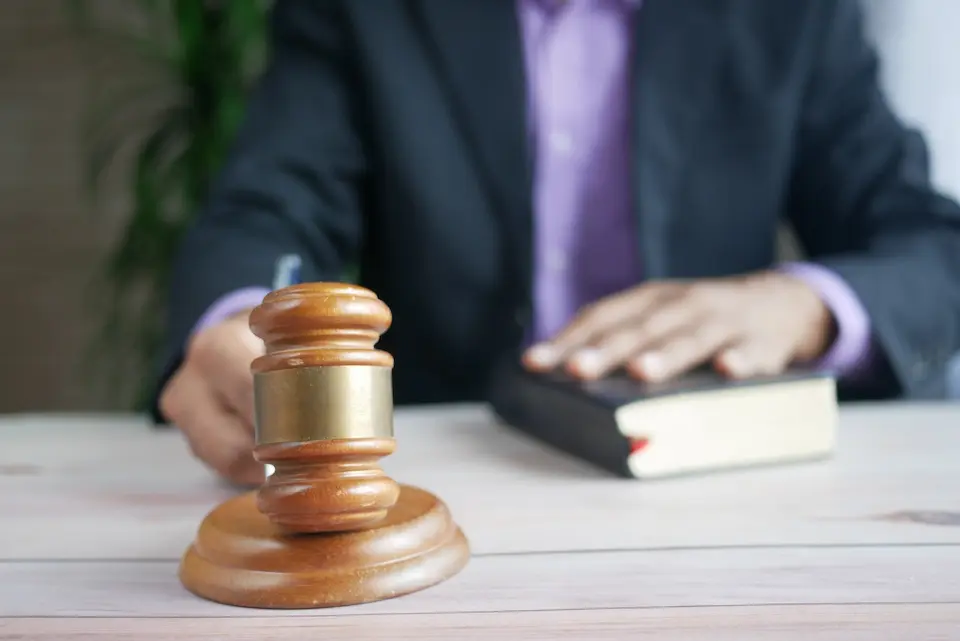If you’ve ever wondered about the implications of a criminal summons or found yourself served with one, the criminal defense attorneys from The Coolidge Law Firm are providing this essential guide to understanding the process and potential consequences of a criminal summons in North Carolina.
We aim to explore the fundamental aspects of criminal summons, help you to understand the process, and discuss the consequences that come along with a criminal summons in NC. Our mission is to empower you with the information necessary to make informed decisions about navigating the legal system after receiving a civil summons.
What are Criminal Summons?
A criminal summons is a legal document that brings forth criminal allegations and is issued by a court. The formal notice notifies an individual that they stand accused of pending criminal charges against them. Unlike an arrest warrant, which authorizes law enforcement to arrest a suspect immediately, a criminal summons requires the accused to appear in court on a specified date and time to address the charges.
The Difference Between a Criminal Summons and an Arrest Warrant
The key distinction between a criminal summons and an arrest warrant lies in their enforcement. With an arrest warrant, law enforcement has the authority to take the accused into custody at any time and place, often leading to an immediate arrest. In contrast, a criminal summons allows the individual facing felony or misdemeanor charges to remain free until their scheduled court appearance.
How Do You Receive Criminal Summons in NC?
A law enforcement officer or a designated individual, often a process server, will physically hand over the summons, ensuring that the accused is aware of the pending charges and the scheduled court appearance.
The summons will contain essential information, such as:
- The specific criminal charges you are facing
- The date and time you must appear in court
- The name of the issuing court
It is vital to take a criminal summons seriously, as failing to appear in court as directed can lead to serious consequences, including the issuance of an arrest warrant.
Understanding the Process of a Criminal Summons
The process of a criminal summons involves several key steps that unfold from the issuance of the summons to the final resolution of the case in court.
Issuance of the Summons
The process begins when a law enforcement officer or a prosecutor files a complaint with the court, detailing the alleged criminal offense committed by an individual. If the court finds sufficient evidence to support the charges, it may issue a criminal summons instead of an arrest warrant, especially in cases of non-violent misdemeanors or low-level offenses.
Delivery of the Summons
Criminal summonses are typically issued for misdemeanors and non-violent offenses, where the accused is not considered a flight risk and is unlikely to pose a threat to the community. In cases where immediate arrest is not necessary, the court may choose to issue a summons, by delivery of a police officer or other individual, to encourage the accused’s voluntary appearance and participation in the legal process.
Contents of the Summons
The criminal summons contains essential information that the accused needs to be aware of. It includes the date, time, and location of the court appearance, the specific criminal charges against the individual, and any additional instructions.

Court Appearance
The accused is obligated to appear in court on the specified date and time indicated in the summons. This court appearance is typically the first step in the legal process. During this initial appearance, the charges will be formally read, and the accused will have the opportunity to enter a plea (usually “guilty” or “not guilty”).
Legal Representation
While it is not mandatory to have legal representation during the initial court appearance, it is highly advisable to seek the counsel of an experienced criminal lawyer who can walk you through NC criminal laws and the legal process in North Carolina. A lawyer can guide the accused through the legal process, explain their rights, and develop a strong defense strategy.
Pre-Trial Proceedings
Following the initial appearance, there may be pre-trial proceedings where the defense and prosecution exchange evidence and information relevant to the case. This may include witness statements, police reports, and other evidence that will be used during the trial.
Negotiations and Plea Bargaining
In some cases, the prosecution and defense may engage in negotiations to reach a plea agreement or plea bargain. This involves the accused agreeing to plead guilty to lesser charges or accept a specific sentence in exchange for a reduced penalty. However, any plea agreement must be approved by the court.
Trial or Dismissal
If a plea agreement is not reached, the case will proceed to trial. During the trial, both sides present their evidence, witnesses may testify, and the judge or jury will determine whether the accused is guilty or not guilty. If the prosecution fails to prove the charges beyond a reasonable doubt, the court may dismiss the case.
Verdict and Sentencing
If the accused is found guilty, the court will proceed to sentencing. The judge will consider various factors, including the severity of the offense, the defendant’s criminal history, and any mitigating or aggravating circumstances, before determining an appropriate sentence.
Appeals
If the accused is dissatisfied with the verdict or believes there were legal errors during the trial, they may have the option to appeal the decision to a higher court.
What Happens at a Criminal Summons?
At a criminal summons, several key events take place as part of the legal process. The purpose of this court appearance is to inform the accused of the charges against them and to set the foundation for further proceedings.
Formal Reading of Charges
The accused appears before the court, and the charges against them are formally read aloud. This ensures that the individual is aware of the specific offenses they are being accused of and establishes a clear understanding of the case.
Identity and Rights Verification
The court verifies the identity of the accused and ensures that they understand their constitutional rights. These rights include the right to remain silent, the right to an attorney, the right to a fair trial, and the right to confront witnesses against them.
Plea Entry
During the criminal summons, the accused is asked to enter a plea. If the accused pleads guilty or no contest, the case may proceed to sentencing. If they plead not guilty, the case will move forward to further proceedings, such as pre-trial hearings or trial.
Appointment of Legal Representation
If the accused has not already secured legal representation, the court may inquire whether they need a court-appointed attorney if they cannot afford one. Having legal counsel is vital to ensure that the accused’s rights are protected and to navigate the legal process effectively.
Bail Consideration
Bail is an amount of money set by the court that the accused must pay to be released from custody while awaiting trial. Alternatively, the court may impose non-monetary conditions for release, such as surrendering a passport or attending mandatory check-ins.
Setting Future Court Dates
The court will set dates for future proceedings, such as pre-trial hearings or trial dates. These dates will depend on the complexity of the case and the availability of the parties involved, including the defense attorney, prosecutor, and witnesses.
Disclosure of Evidence
In some jurisdictions, the prosecution may provide initial disclosure of evidence to the defense during the initial appearance. This may include police reports, witness statements, and other evidence related to the case.

Entering a Plea Agreement
Depending on the circumstances of the case, the prosecution and defense may use the initial appearance as an opportunity to negotiate a plea agreement or plea bargain.
Exploring the Consequences of a Criminal Summons
A criminal summons can have significant consequences for the accused, both in the short term and the long term. Understanding these potential outcomes is crucial for anyone facing a criminal summons in North Carolina.
Criminal Record
Having a criminal record can have far-reaching implications, affecting employment opportunities, housing options, and even the ability to obtain certain licenses or certifications.
Penalties and Fines
Depending on the nature of the charges, the court may impose various penalties, such as fines, probation, community service, or mandatory participation in rehabilitation programs.
Jail Time
While criminal summonses are generally issued for non-violent offenses, certain misdemeanors and other low-level crimes can still carry the possibility of incarceration.
Impact on Immigration Status
For non-U.S. citizens, a criminal summons and subsequent conviction can have severe consequences on immigration status. Certain criminal offenses may result in deportation or the denial of immigration benefits, such as obtaining a green card or visa.
Professional Licenses
Professionals holding licenses, such as doctors, lawyers, teachers, or nurses, may face disciplinary actions or license revocation if convicted of certain crimes. A criminal summons can lead to investigations by licensing boards, potentially jeopardizing one’s career.
Civil Consequences
In addition to criminal penalties, the accused may also face civil consequences if the alleged offense caused harm to others. This may include civil lawsuits seeking financial compensation for damages or injuries.
Background Checks
A criminal summons can appear on background checks, which can impact personal and professional opportunities, including employment, housing applications, and loan approvals.
Loss of Rights
Depending on the nature of the charges, a criminal conviction can result in the loss of certain rights, such as the right to vote, possess firearms, or serve on a jury.
Reputation Damage
Being involved in a criminal case, even if found not guilty, can still damage an individual’s reputation and social standing within their community or professional circles.
Preparing for Your Court Date
Preparing for your court date is essential to ensure that you have the best chance of presenting a strong defense and protecting your rights.
Finding Legal Representation
Hiring a skilled criminal defense attorney will help gain a deeper understanding of North Carolina’s criminal laws and court procedures, as they can provide invaluable guidance throughout the legal process. Your Charlotte criminal defense attorney can assess the details of your case, build a robust defense strategy, and represent your interests in court.
Understanding the Charges
Familiarize yourself with the specific charges mentioned in the criminal summons. Discuss the details of the charges with your attorney, who can explain the potential penalties, defenses available, and the most appropriate course of action for your situation.
Gathering Necessary Documents
Compile all relevant documents and evidence related to your case. This may include police reports, witness statements, photographs, receipts, or any other evidence that could support your defense or cast doubt on the prosecution’s case. Provide these materials to your attorney so that they can review and strategically use them during legal proceedings.
Protect Your Rights From A Criminal Summons With A Criminal Defense Lawyer from The Coolidge Law Firm
Don’t face criminal summons alone– safeguard your rights with the help of the trusted criminal defense lawyers from The Coolidge Law Firm. Whether you’re dealing with misdemeanor charges or low-level offenses, our team will be by your side every step of the way, ensuring that your rights are upheld and your voice is heard in the courtroom.
Take action now and schedule a consultation by calling us at (919) 239-8448 or filling out the contact form below.



